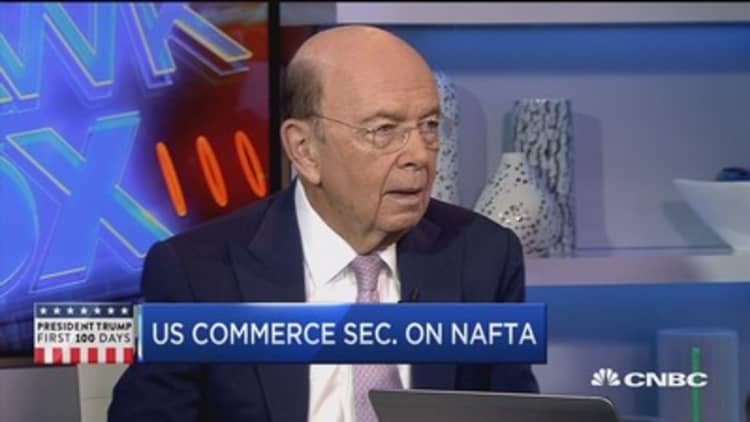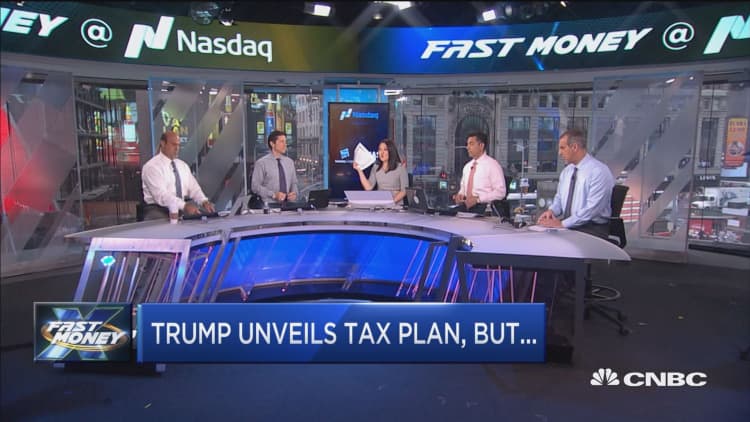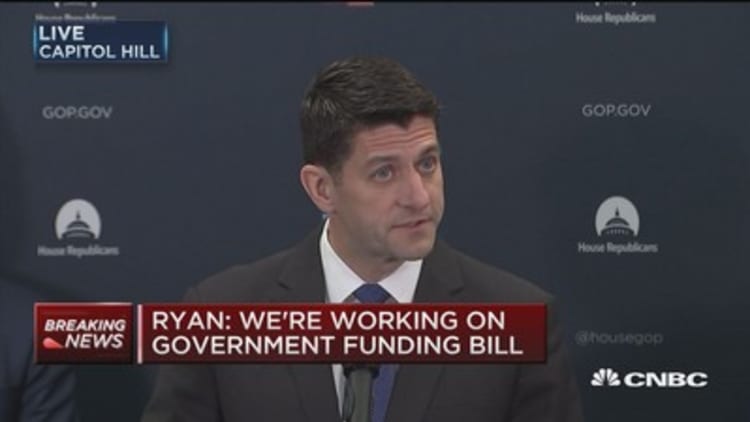
Tax reform appears just around the corner, potentially breathing new life into share buybacks and the companies that do them.
Wall Street generally remains confident that a plan that passes Congress will include a cut in the tax rate for repatriation of profits — overseas earnings brought back to the U.S. — despite no mention of a specific rate in the Wednesday announcement of the Trump administration's plan. The handout from the administration just read, "one-time tax on trillions of dollars held overseas."
"When it comes, I do believe it will impact buybacks more than dividends," said Howard Silverblatt, senior index analyst at S&P Dow Jones Indices. "Buybacks are a win-win short-term situation for companies. The minute you do it, you support your stock."
Buying back shares reduces the share count for a stock, increasing the earnings per share. Shareholders theoretically benefit, although critics say companies' cash would be better used in longer-term investments for the good of the business such as capital expenditures.
"I think there is a good chance the 10 percent tax repatriation rate will be implemented," Thomas Digenan, head of U.S. intrinsic value equity at UBS Asset Management, said in an email. "To the extent the Republicans are willing to use the budget reconciliation process [that expedites policy consideration], they will only need a simple majority to pass a tax bill."

In November, after Trump's election win, Goldman Sachs' chief U.S. equity strategist, David Kostin, forecast that S&P 500 buybacks would surge by 30 percent this year if there is repatriation, but by just 5 percent without tax reform. Kostin estimated that lower tax rates on repatriated profits should add $150 billion to a total expected $780 billion in buybacks, only the second time in 20 years in which buybacks will account for the largest share of total cash use by S&P 500 companies.
The buyback trade
One way to trade a potential resurgence in share buybacks is through the PowerShares Buyback Achievers Portfolio (PKW), which tracks U.S. stocks with a net reduction in shares outstanding of at least 5 percent in the last 12 months.
Except for 2015, over the last eight years PKW has generally outperformed the with solid double-digit annual gains. The fund rose as much as 44.56 percent in 2013.
But so far this year, PKW is up only about 4 percent, versus the S&P 500's nearly 7 percent rise.
Five-year month-to-date performance of PKW vs. S&P 500 (indexed to Dec. 30, 2016)
Source: FactSet
PKW tracks the Nasdaq U.S. BuyBack Achievers Index and the holdings of both are adjusted after the end of every quarter to account for changes in company share count.
As of Tuesday, the top five holdings in PKW were:
To be sure, Trump's tax proposal also faces the very big hurdle of congressional approval. It is possible the final repatriation rate is higher than 10 percent, cutting into the amount of cash returned and limiting the buyback trade.
When looking at companies with the most cash held overseas, technology names dominate.
Apple, Microsoft, Alphabet, Cisco and Oracle are the five companies with the largest overseas cash holdings, according to an April 17 note from S&P Global Ratings' Andrew Chang.
Among those, Apple has also topped the list of S&P 500 companies with the largest quarterly buybacks and share count reduction in history, S&P's Silverblatt said.
That said, technology stocks have already been the biggest winners of the last few months — the Nasdaq composite hit a record high Thursday.



